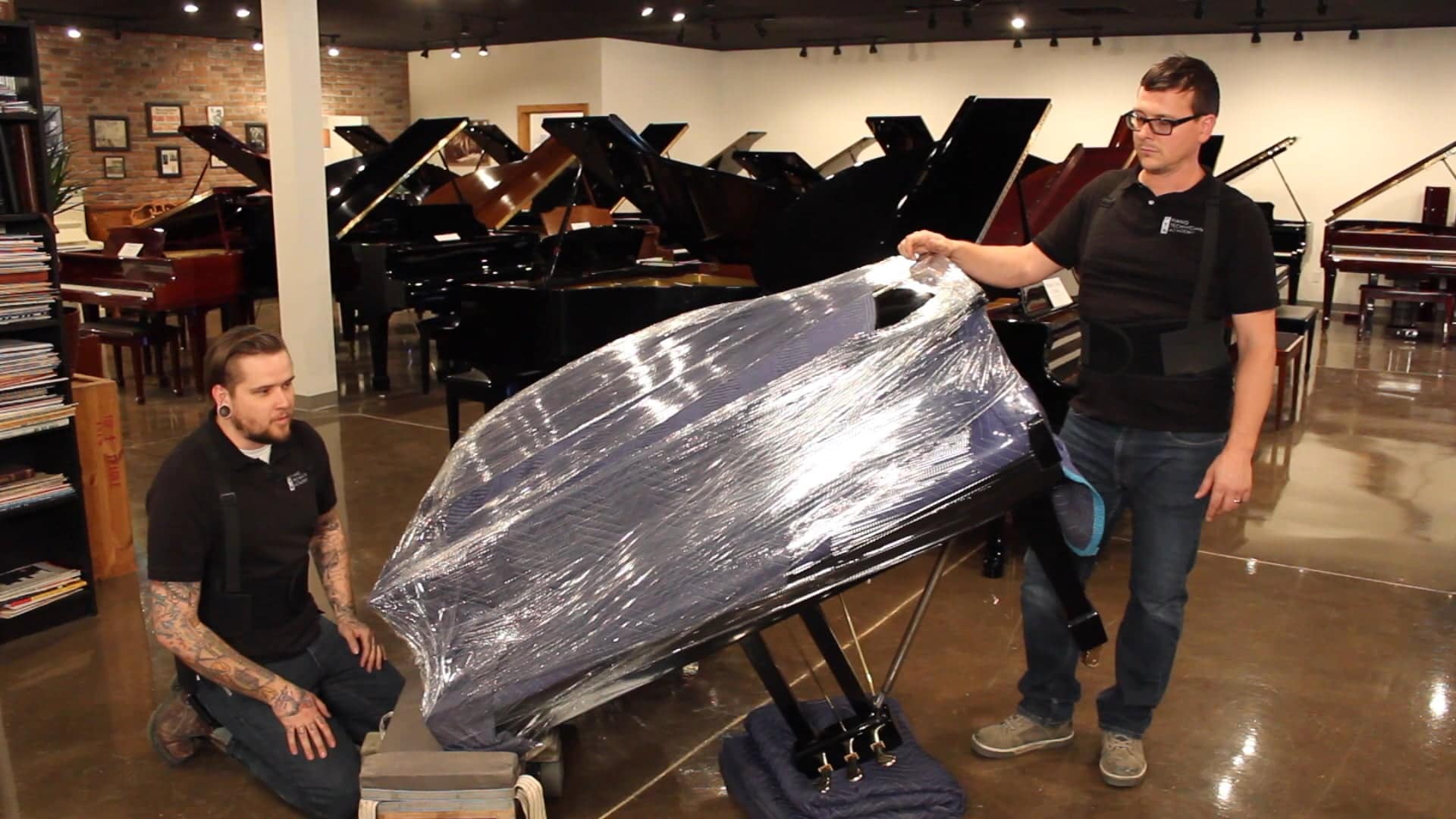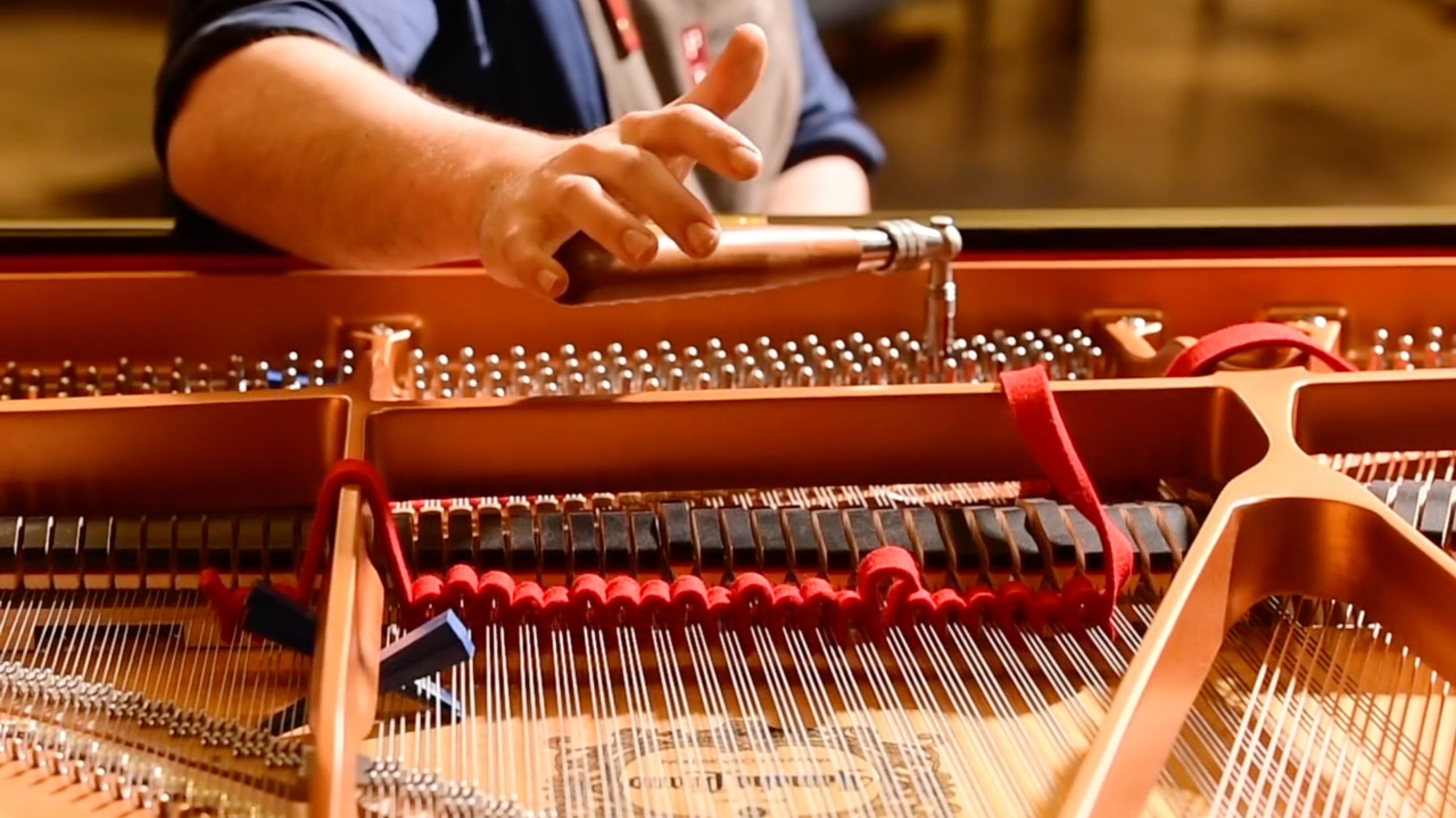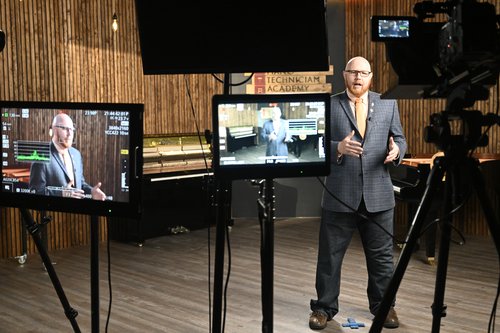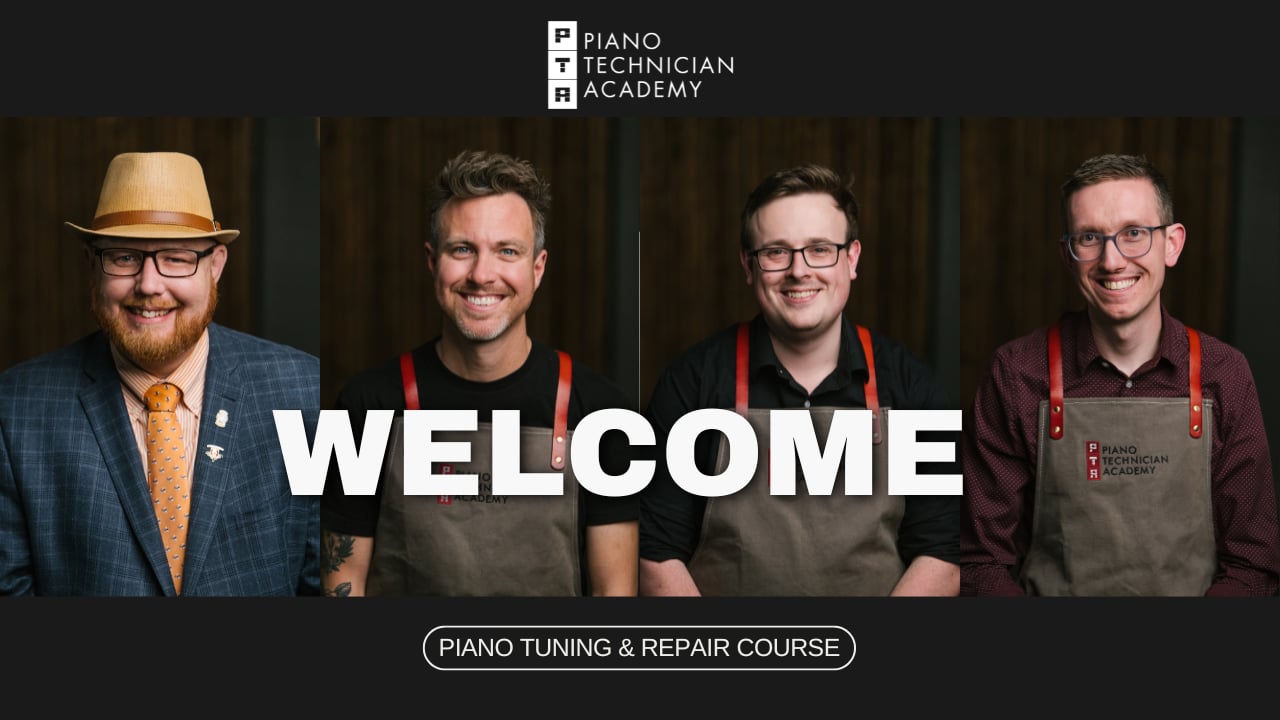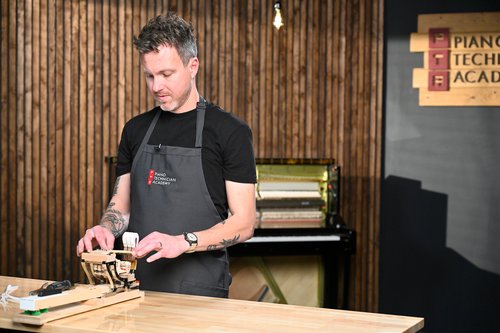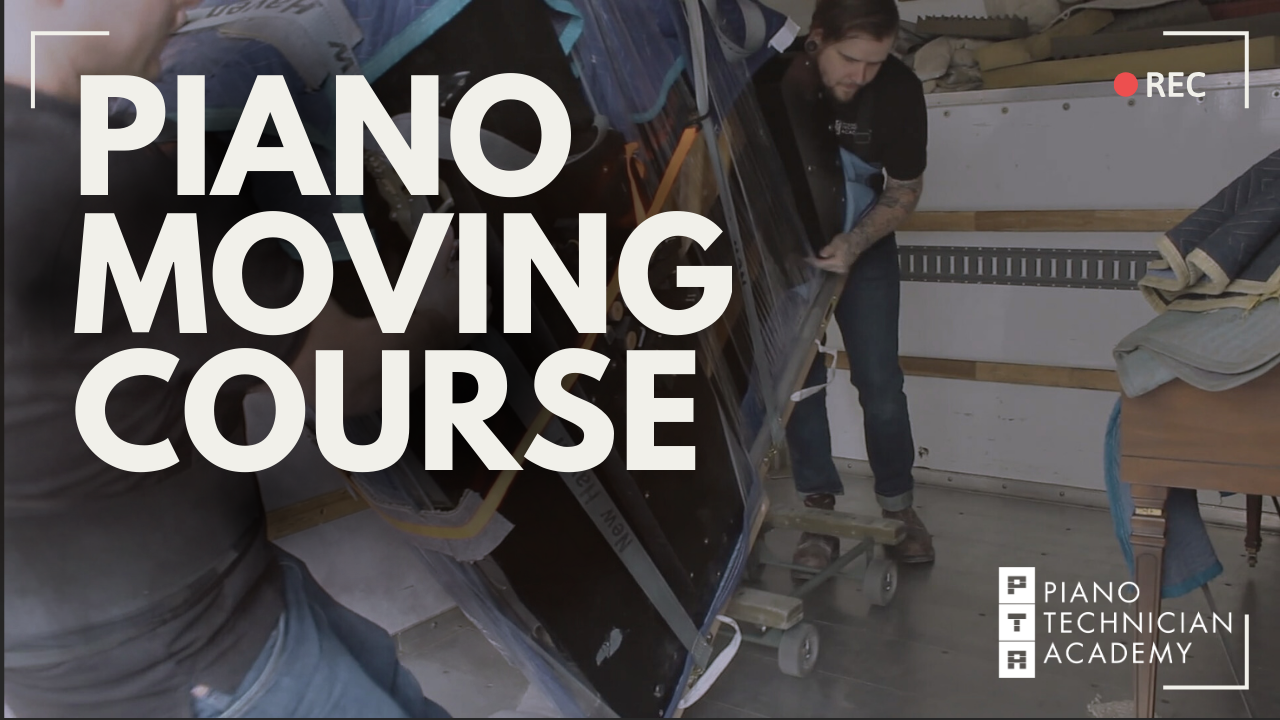
Piano Moving Online Course
With over 70 high-def videos and 20 lessons ranging from aural tuning and voicing to common major and minor repairs, our online course is the most comprehensive correspondence training program in the world. The course has been laid out in a very organized way by our in-house learning architect, Jeff Johnson, who has a master’s degree in curriculum and instructional technology, to ensure maximum material retention.
Overview
About the course
The Piano Technician Academy’s course, Piano Tuning & Repair, was written by Adam Hayes RPT; Jason Cassel, RPT; Timothy Barnes, RPT; and Michael Stilwell, CPT. It was designed as a training program to not only get people started in the piano service industry but also to train technicians to take the Registered Piano Technician exams given by the Piano Technicians Guild. With over 70 high-def videos and 20 lessons ranging from aural tuning and voicing to common major and minor repairs, our online course is the most comprehensive correspondence training program in the world. The course has been laid out in a very organized way by our in-house learning architect, Jeff Johnson, who has a master’s degree in curriculum and instructional technology, to ensure maximum material retention. Unlike other online mentorship/correspondence training, PTA utilizes technology, world-renowned instructors, and a learning management system that allows our students to get to work in our industry faster than any other training program.
What Makes PTA Different
Unlike other online or correspondence piano tuning and repair programs, the PTA course was written with the Registered Piano Technician (RPT) exams, given by the Piano Technicians Guild (PTG) in mind. Our course has been used by hundreds of technicians aspiring to earn the coveted RPT status which opens countless doors for them in the piano service industry. Our instructors make up some of the most well-known RPTs in the US. They regularly write articles for the PTG journal, exhibit at PTG conferences, and teach at piano industry events. While some schools focus on how quickly they can get students working in the field, PTA focuses on their students actually learning the trade the proper way so that students are adequately prepared when they enter the market. Oftentimes, our students enter the market faster than students from those schools that focus on speed. This is because of our extensive learning management system (LMS). Unlike other online programs, our LMS is interactive and is used by some of the top universities in the USA who require a more professional system than simple plug and play education options found on the internet today. The PTA course is rebuilt every 4–5 years to take advantage of new technologies and build upon what the industry has to offer. With graduates in over 50 countries and an average graduation rate of 90%, our 300-400 student count a year makes PTA the largest piano tuning school in the world.
Course Layout
The course is broken down into 20 lessons. At the end of each lesson, students are required to take an 8–10-question quiz consisting of multiple choice, match the part/tool, and true/false questions. At the end of Lesson 20, students are required to take a 50-question final exam that covers all lessons.
Tuition & Time Frame
The tuition for the course is $1,800 and includes access to the online classroom for 12 months as well as access to downloadable/printable PDF versions of all the lessons for future reference. You will also have regular contact via email or telephone with your instructor both during your studies and after your course is complete. Videos are not downloadable for copyright reasons and are only viewable in the online classroom.Being an online school, the Piano Technician Academy can offer year-round open enrollment. The course is self-paced, allowing students to study when it is convenient for them. PTA does, however, require that you finish the course within 12 months of initial enrollment. Extensions are available upon request. PTA recommends taking longer on the tuning lessons (18–30 hours) before moving on, while others may only take 2–5 hours. That being said, students should plan to spend about 250–380 hours on the course.
Lessons
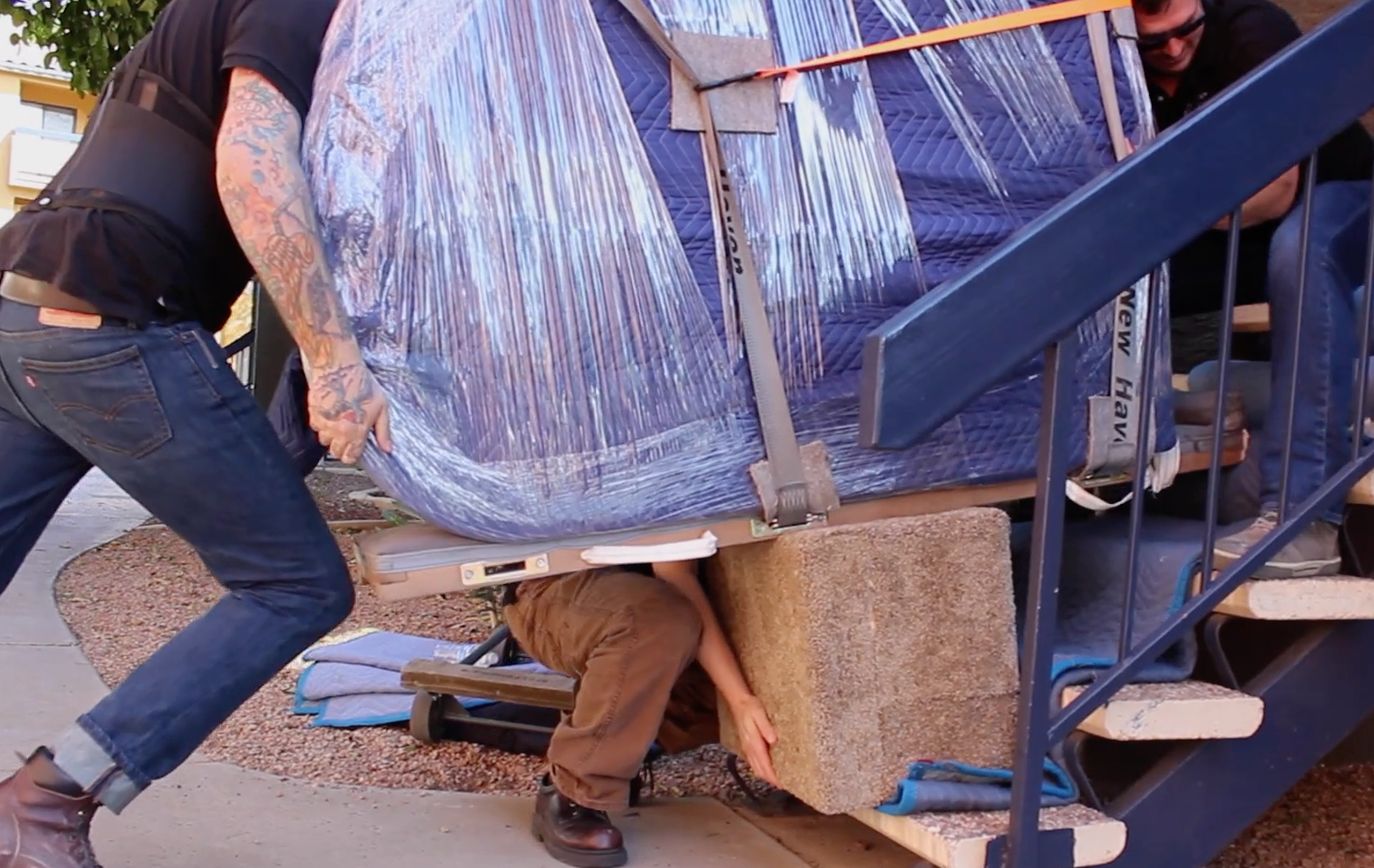
Lesson 1
:
Tools of the Trade
Includes 1 video for a total 30 mins, 2 written exercises, and 1 quiz
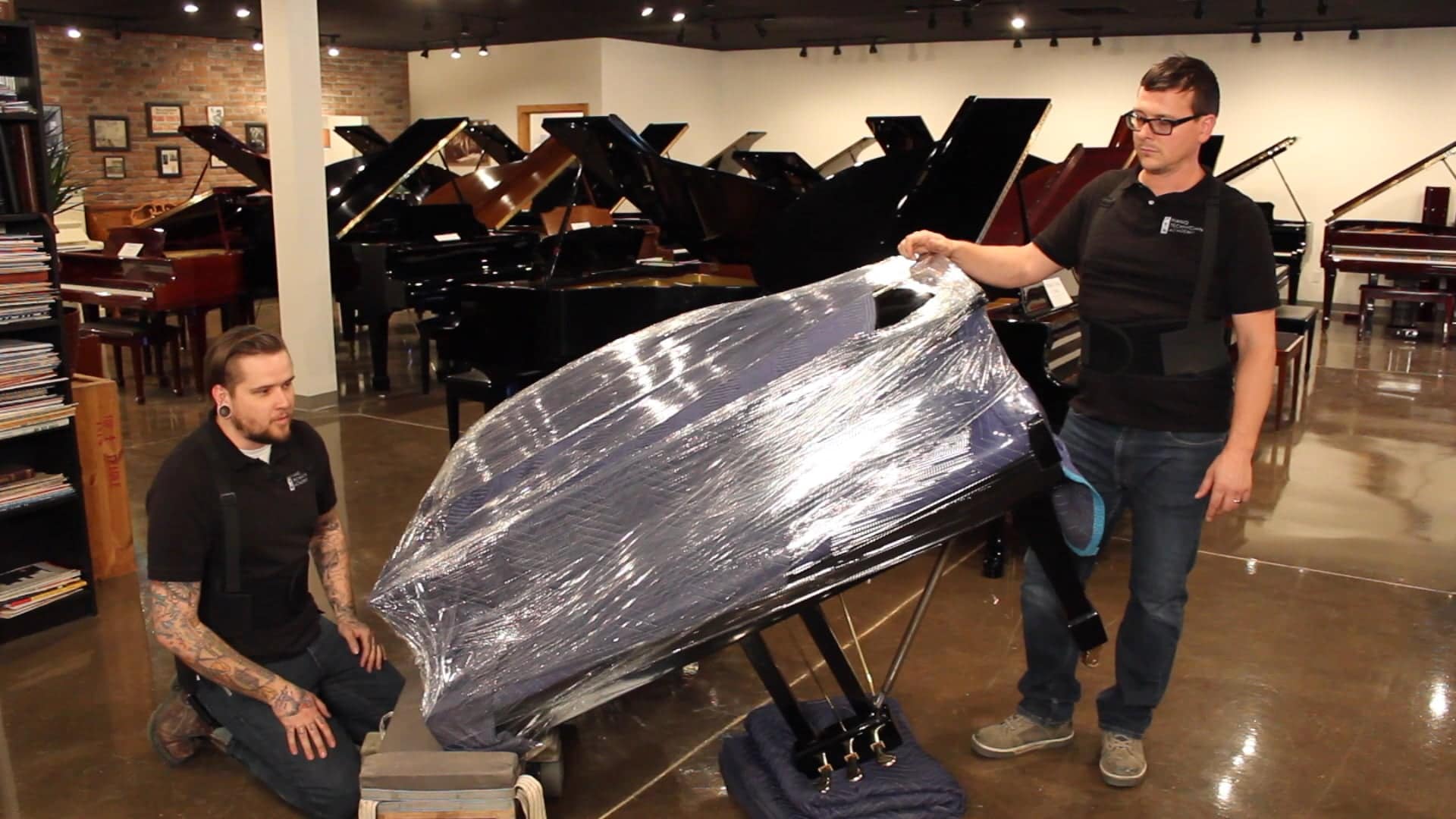
Lesson 2
:
Protecting Yourself, the Customer and your Business
Includes 1 video for a total 30 mins, 2 written exercises, and 1 quiz
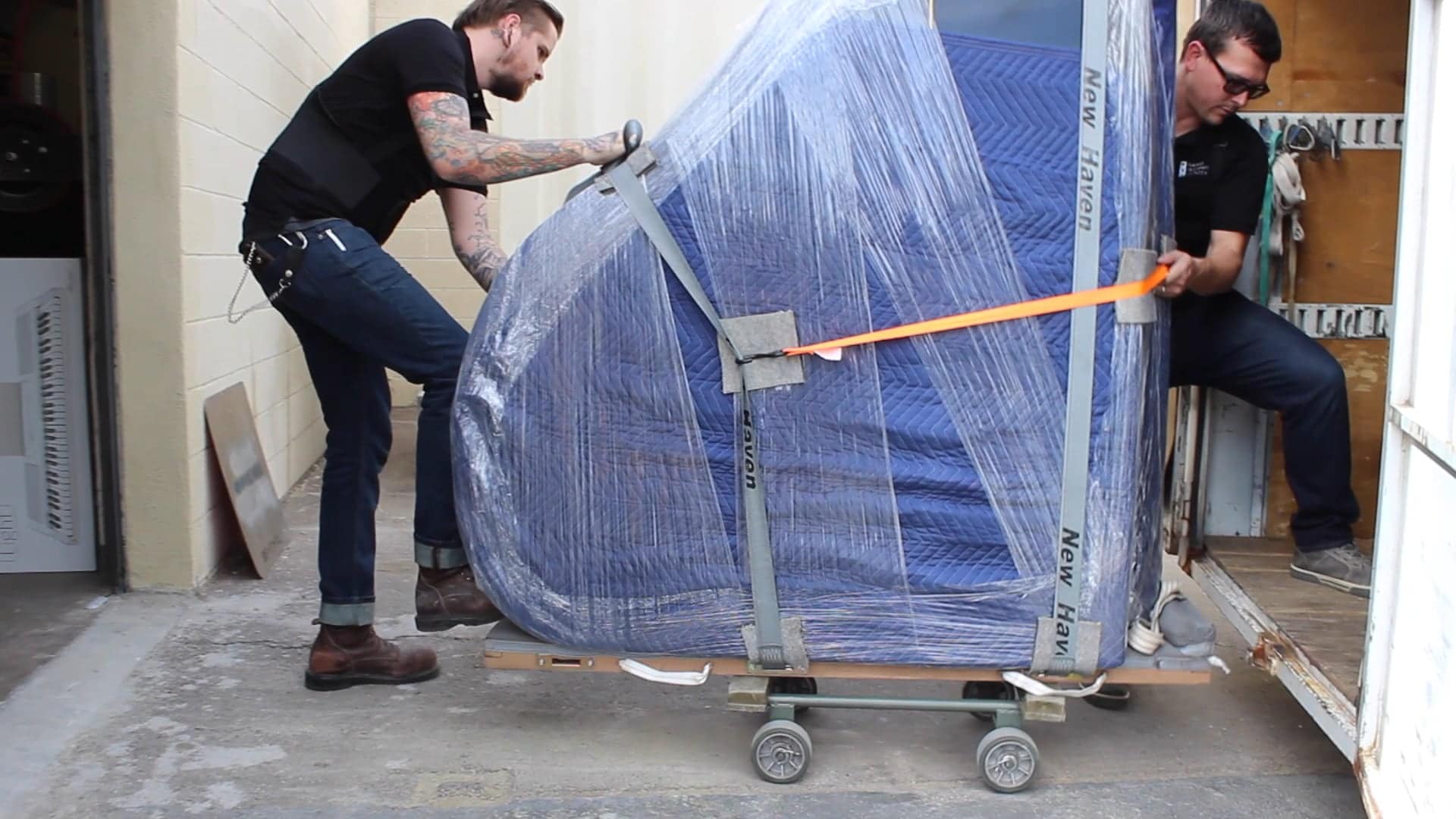
Lesson 3
:
Moving Upright Pianos
Includes 1 video for a total 30 mins, 2 written exercises, and 1 quiz
